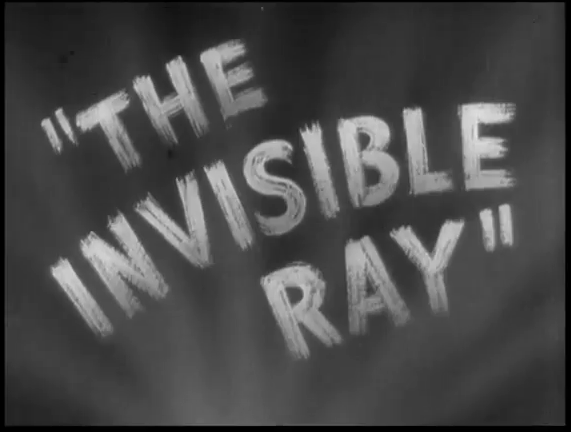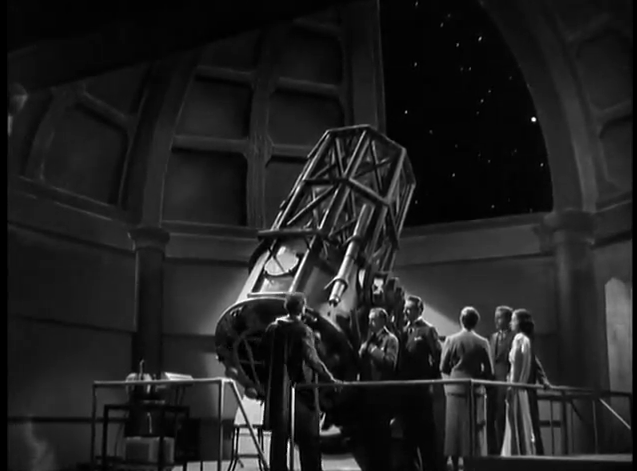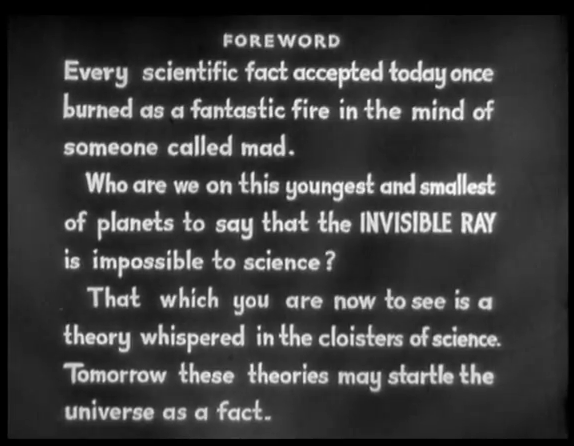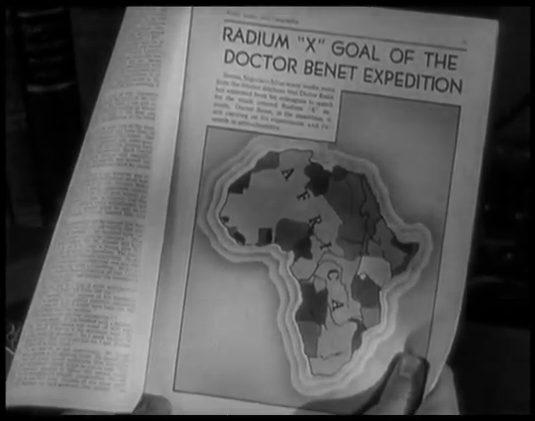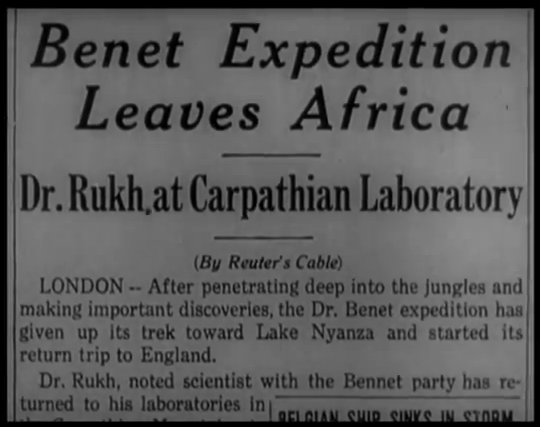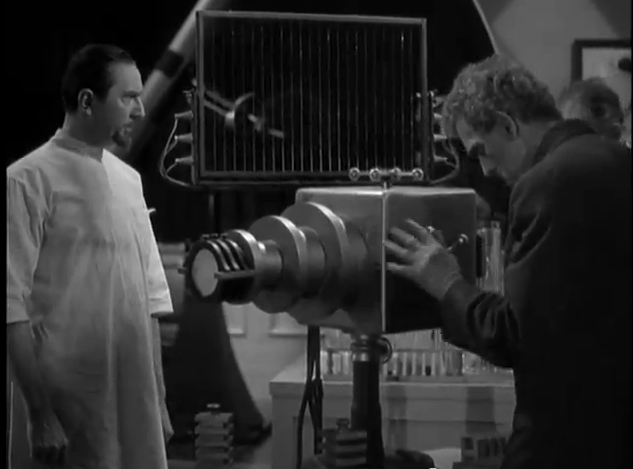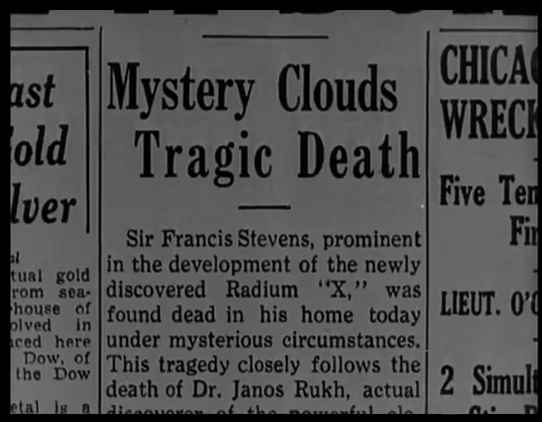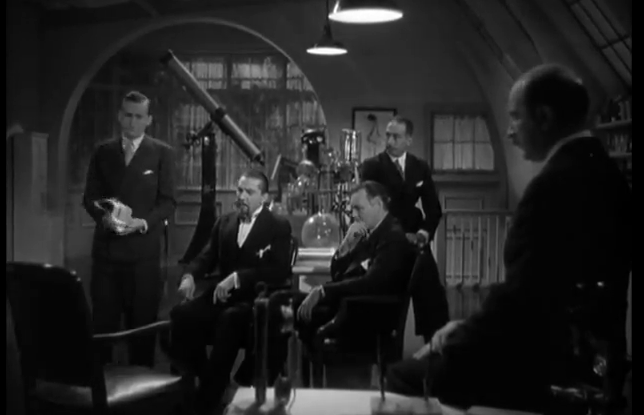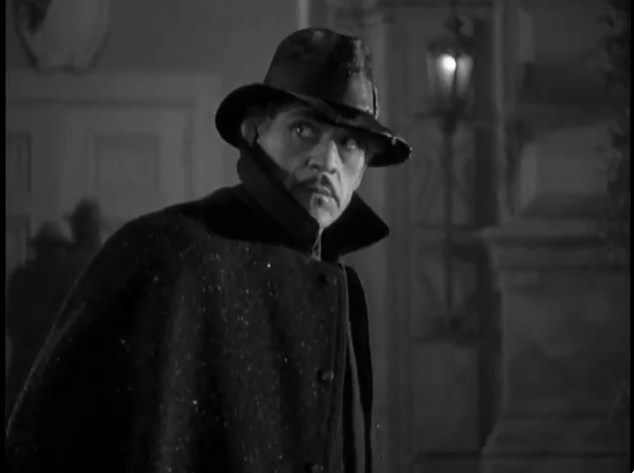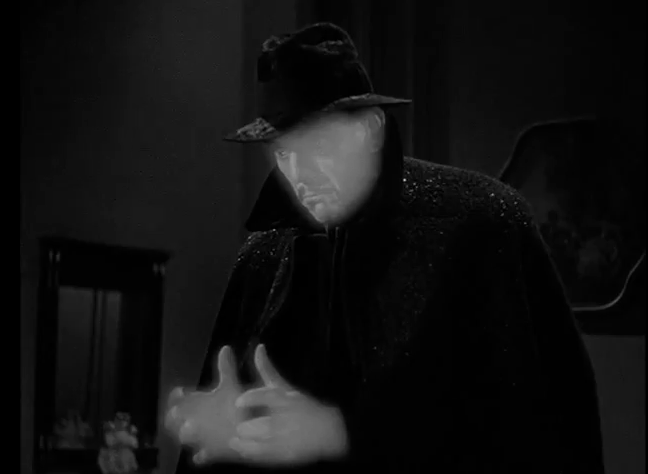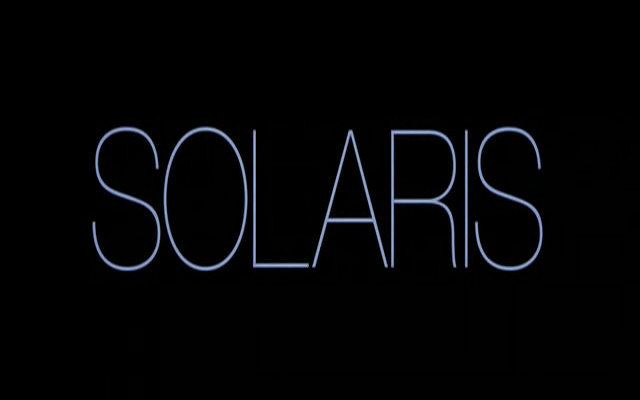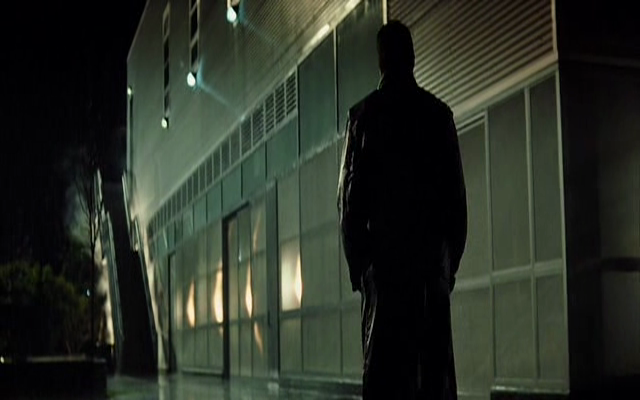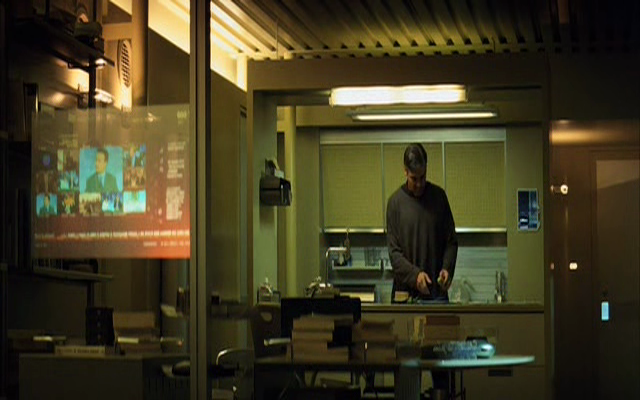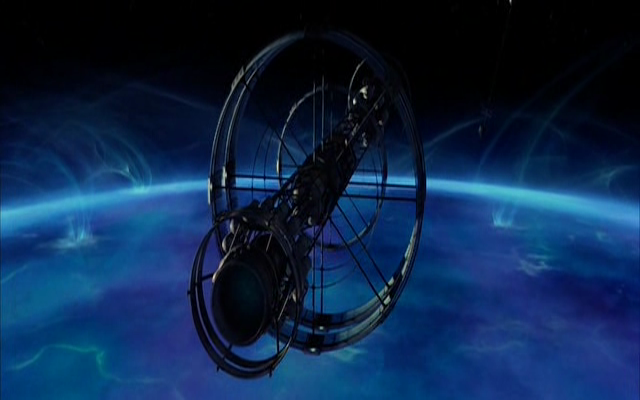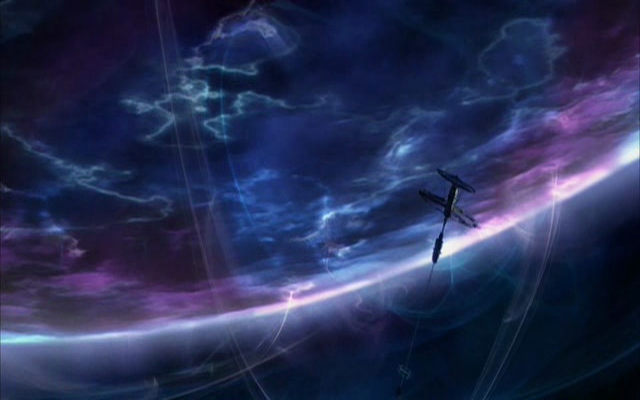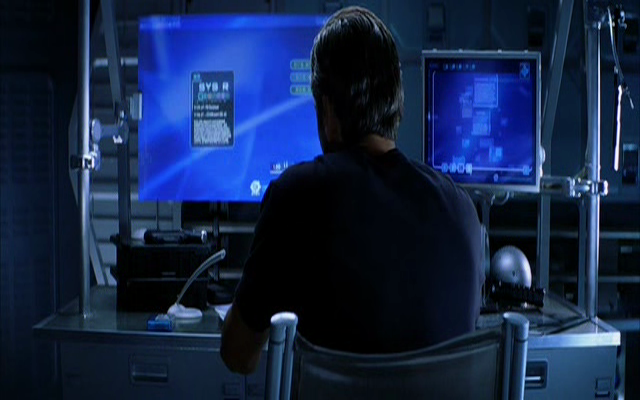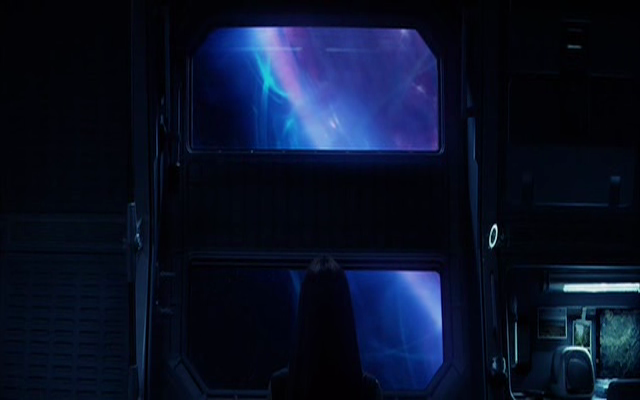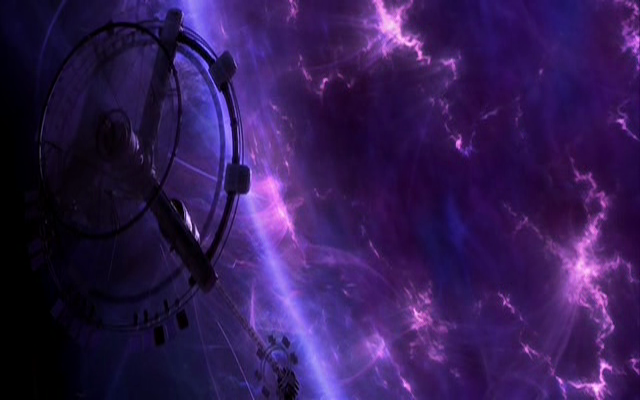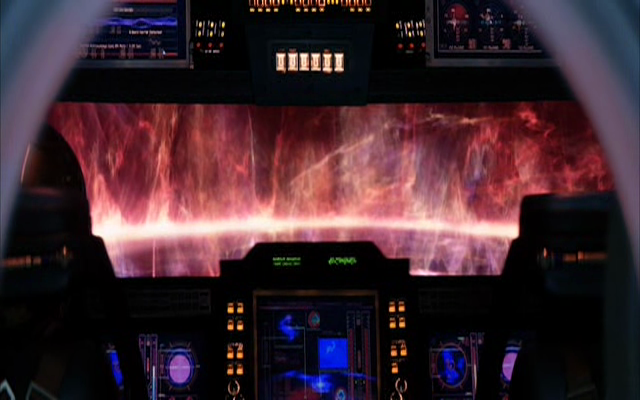-
#20 – The Invisible Ray (1936)
The Invisible Ray (1936)
Film review #20
Director: Lambert Hillyer
A film about the impacts of scientific discoveries on the human mind…
Dr. Janos Rukh is a bit of an outcast scientist. He has invented a telescope that can see far into space- in particular, the Andromeda Galaxy. By picking up rays of light from the galaxy, he can use them to look at how Earth looked in the past. He has invited A group of people to witness his experiment, including his wife Diana, Dr. Felix Benet, Sir Francis Stevens, his wife Arabella, and their nephew Drake.
The experiment is a success, and the group view the Earth from millions of years ago. They witness a meteor crashing into the continent of Africa, which coincides with the other scientists investigation into the meteor, and now they have a location to search thanks to Rukh’s experiment. During this evening, there is also an instant attraction between Diana Rukh and Drake, which they both try to ignore.
The group has travelled to Africa on an expedition to find the meteor. Rukh has split from the group to find it himself. When he finds the meteor, he becomes exposed to the radiation of “Radium X”, of which the meteor is composed. Later that night, when it is dark, he begins to glow as a side-effect to the radiation, and he can kill someone just by touching them. He confides in Dr. Benet, who develops a counteragent that Rukh must take every day so the effects don’t return and kill him.
The radiation also begins to affect Rukh’s mind. When the group return to Paris, Dr. Benet uses a fragment of the meteorite to heal sickness and cure blindness (the cure also works on Rukh’s elderly mother), Rukh feels as though his discovery has been stolen, and begins plotting revenge. He fakes his own death, upon which Diana and Drake marry. Rukh intends to kill off the five people on the expedition who have betrayed him, and he goes after them one by one.
Eventually, only Ronald, Diana and Benet are left. They work with the French police to spring a trap to lure him in by staging a lecture and inviting a number of leading scientists. They will turn off the lights at midnight, and if Rukh is there, he will light up. Rukh infiltrates the party and kills Benet, and heads upstairs to finish off Diana and Drake. Rukh finds Diana, but finds himself unable to kill his former wife, and goes to find Drake instead. Just then, his mother appears and tells Rukh to stop. She smashes the bottle of the counteragent made by Benet, and he jumps out a nearby window, falling to his death, and bursting into flames…
I think that what we have is an interesting scenario in this movie: What are the human ramifications of scientific pursuits? Rukh is very much portrayed as a recluse, and a little bit of a mad scientist. This characteristic is the central point of the film, as he slowly loses his mind and desires to exact revenge on those who have stolen his discovery. The foreword to the movie reminds us that every scientific fact was once “a fantastic fire burning in the mind of someone called mad”. A scientist must be daring to challenge what is already considered fact, and change people’s understanding of the universe. In the past, this would have earned them ridicule and persecution from religious leaders, heads of state and fellow scientists (Although this happens less so today, there is no doubt that it still exists.
The movie asks us to keep an open mind, and speculate whether the events that take place in the film could happen. Could we really look back in time by capturing the light of distant galaxies? Does that light contain information to what it has seen? It would be easy to dismiss such a wild tale, but we know that the light we see coming from distant stars is perhaps thousands of years old, and by looking at the stars in the night sky, we are essentially looking back in time. Could that light contain information about what it has seen during its travels? Very unlikely, but this movie does encourage us to keep an open mind to the possibilities of new discoveries that could change everything we know about the universe. This is what science is: A self-correcting procedure, though perhaps it is misrepresented as a cold, infallible truth, which is simply not (for me) what science is about.
-
#19 – Solaris (2002)
Solaris (2002)
Film review #19
Director: Steven Soderbergh
A psychological sci-fi movie delving into the human mind…
Chris Kelvin is a psychologist on Earth in an unspecified time in the future. One day he receives a visit from emissaries from the DBA, who give him a message from an old friend, Dr Gibarian, who wants him to come aboard the space station orbiting the planet Solaris to help them with the strange phenomena that is happening there, which is making the team not want to leave. The security team that went there did not report back, and Chris is to be sent as a last resort to rescue the team.
When Chris arrives at the station, he finds Gibarian has committed suicide, and most of the team have disappeared. The only surviving members are Snow, and Dr. Gordon. The survivors are reluctant to explain what is going on, and Snow suggests to “sleep with the door locked”. While sleeping, Chris dreams about his deceased wife Rheya, and how they met. When he wakes up, he finds her there: Seemingly real. He is reluctant to accept this, and tricks her into an escape pod and jettisons it into the planet.
When Chris falls asleep again, Rheya reappears, and this time Chris is more convinced and lets her stay. This creates a tension between him and Dr. Gordon, who believes these creations to be a threat to the human race, and why she does not want to return to Earth with one of them on board. Eventually, after learning of what Chris did to her the first time she appeared, she commits suicide. This is partly because she is made from Chris’s memories, and he remembers her as she was when he found her dead by killing herself. However, she begins to regenerate and heal herself. She has no more reason to live, and wants Dr. Gordon to kill her using a special device. Chris won’t allow it, but when he falls asleep, she goes the doctor and is destroyed.
After this, Chris and Dr. Gordon find the body of Snow, and they realise the one they have been talking to is an imposter, who killed the original Snow in self-defence when he first appeared. The use of the special device Gordon used to kill Rheya is causing the station to collapse into the planet, and the fake Snow they escape. On the way to the escape pod, Chris makes a decision to stay onboard, deciding he would rather stay with the memories of his wife. The film ends ambiguously, with the two reunited in a place where “Nothing that happened matters anymore”…
Solaris is an adaption of a Polish novel by Stanisław Lem, which was previously made into a film in 1972, to much critical acclaim. This adaption takes a different approach to the story, focusing more on the human interactions, rather than the original concept of the inadequacy of trying to communicate with an alien species. Because of this, the science-fiction aspects are very much toned down in favour of giving the movie a more “Hollywood-esque” appeal. Having an established actor such as George Clooney heading the cast is something one does not see in science-fiction films very often.
The film has a hint of 2001: A space Odyssey in its plot and set design. There is some ambiguity with regards to the reality of certain sequences, with dreams and flashbacks being neatly interwoven throughout the film (Which I have see before in films such as Brazil, Eight and a Half, and Nineteen-Eighty-Four). It is a very easygoing and light film: There are no intense action sequences or the like, but a bit of thinking and deduction are required on part of the viewer in order to work out everything that happens in the film.
The film is considered a decent one, even though it lost money at the box office (About ten million dollars approximately). It has appeared on lists of best remakes, and was generally well received. One person that did not approve of the film was the author of the original novel, who stated:
As Solaris‘ author I shall allow myself to repeat that I only wanted to create a vision of a human encounter with something that certainly exists, in a mighty manner perhaps, but cannot be reduced to human concepts, ideas or images. This is why the book was entitled Solaris and not Love in Outer Space.
The sacrifice of the scientific and philosophical elements of the original novel were perhaps necessary to getting the movie produced, and getting an “A-list” actor such as Clooney on board. While some of those elements still remain, it has been heavily diluted, and focus shifted onto a much more human-centric plot, which one reviewer described as giving the audience something science-fiction films don’t normally give: Emotion. So in conclusion, Solaris makes an attempt to create an emotional science-fiction and many believe it generally succeeds, though perhaps at the cost of being defined as science-fiction? That is up for debate…
